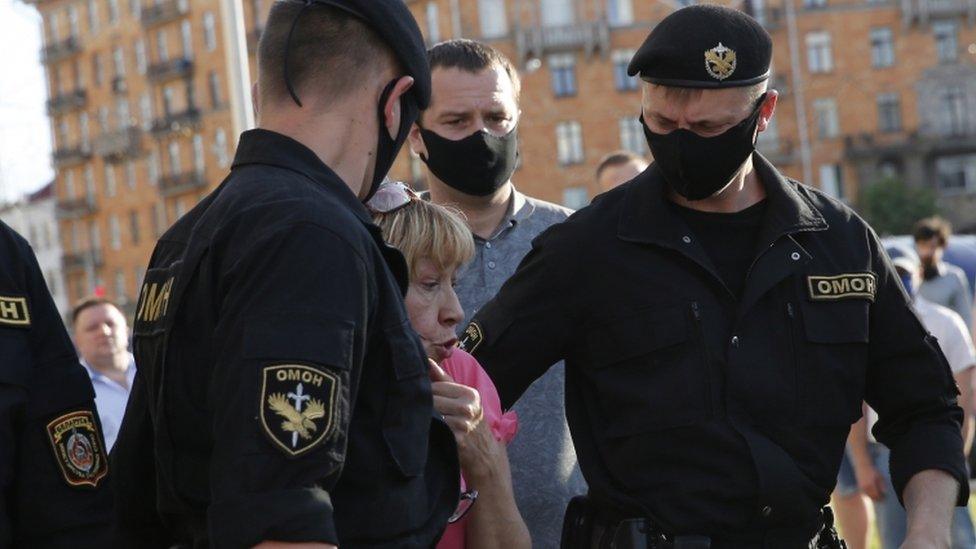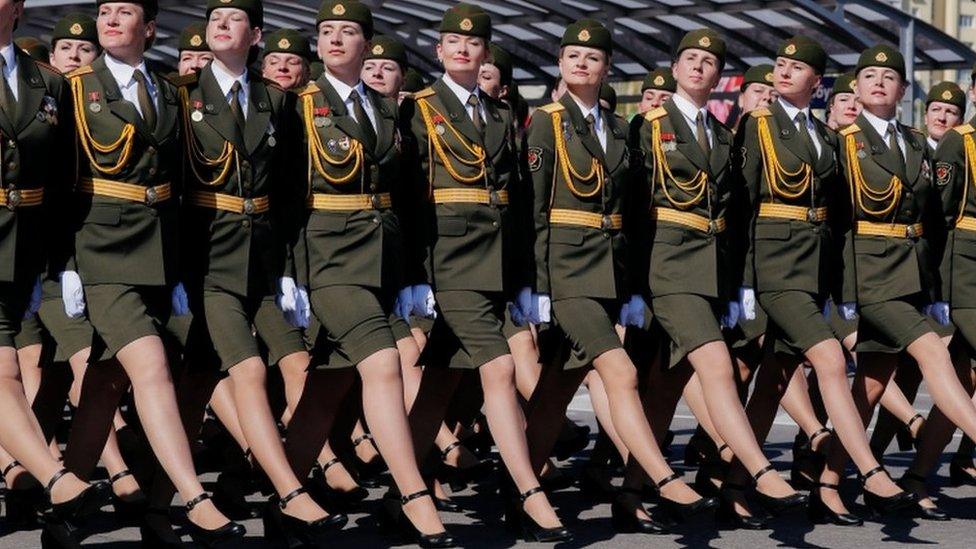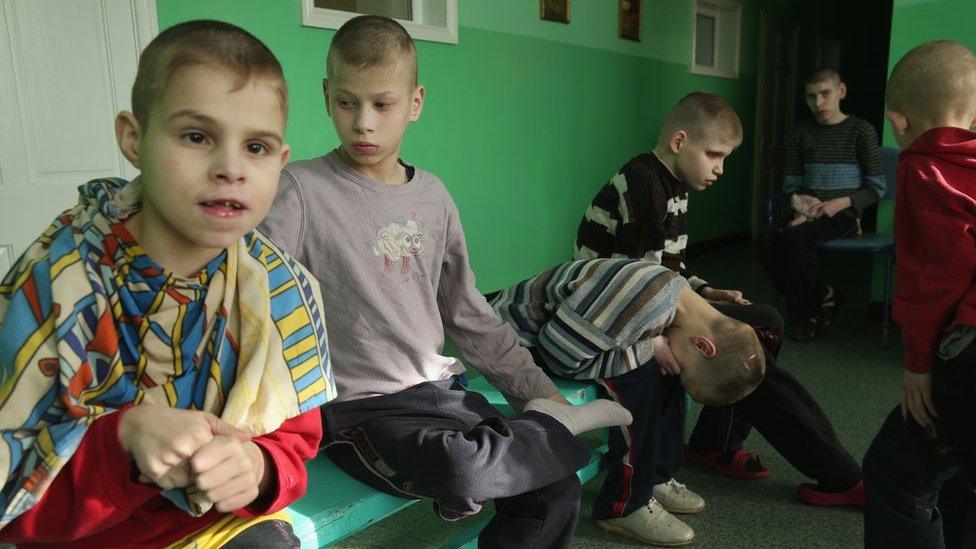Belarus opposition protests end in arrests
- Published

Protestors gathered on Friday in Minsk, Belarus before police moved in
Police in Belarus have detained demonstrators and journalists at a gathering of hundreds of people protesting President Alexander Lukashenko's re-election campaign.
Mr Lukashenko, who has ruled the country since 1994, is seeking a sixth term in office in August.
Opposition candidates gathered supporters' signatures in the capital Minsk before riot police moved in.
A Radio Free Europe correspondent was detained while reporting live on-air.
On Saturday the rights group Vyasna said at least 120 people had been arrested across the country during protests. Some have now been released.
Earlier authorities arrested Mr Lukashenko's main rival Viktor Babaryko on suspicion of financial crimes amid increased harassment of opposition figures.
Opposition activists, journalists and bloggers have also been arrested in recent weeks, according to website Belorusskiye Novosti.
Candidates must gather 100,000 signatures of support in order to stand in the election, and Friday is the last day they can collect the names.
Several hundred people stood on the streets of Minsk with flags, while some clapped in support of the president's critics, according to AFP news agency.
A rare audience with Belarus' President Alexander Lukashenko
But at 19:00 local time police intervened to prevent further signatures being gathered, and arrested about 10 people including journalists from various foreign media, AFP reports.
Radio Free Europe journalist Alyaksandra Dynko was arrested as she was reporting live on the protest.
Police threatened protesters in the city of Mahilyow with force, while in Homel demonstrators were told their gathering was illegal, according to local media.

A different kind of campaign
Analysis by Tatsiana Melnichuk, BBC Russian, Minsk
This election campaign is truly unlike any other President Alexander Lukashenko has had to face in his quarter century in power.
Opposition activists I spoke to compare the current level of activism in Belarus to the early 1990s, when the Soviet Union was falling apart and the independence movement had sprung up.
Now, people are also fed up with the government's indifference to their needs, opposition politician Anatoly Lebedko told me, and they want to choose MPs and a president in transparent elections.
Many also believe that Lukashenko's cavalier attitude to the coronavirus threat has played a key role in shaping the popular mood of dissatisfaction.
Unlike in previous years, the president cannot throw money at the problem and offer Belarusians better living standards - his earlier promises of an average monthly salary of $1,000, later reduced to $500, have never been fulfilled.

European Commission President Ursula von der Leyen has called for the release of Mr Babaryko, calling his detention "politically motivated".
Mr Babaryko was head of Belgazprombank, a Belarus subsidiary of Russian energy giant Gazprom, before entering politics.
His 30-year-old son Eduard, who is running his election campaign, was also arrested on suspicion of tax evasion.
Mr Lukashenko alleged that his authorities had foiled a plot designed to destabilise the country, claiming that forces from "both from the West and from the East" were interfering in Belarus.
International election monitor the Organization for Security and Co-operation in Europe, has not recognised any elections in Belarus as free and fair since 1995.
- Published9 May 2020

- Published25 April 2020
